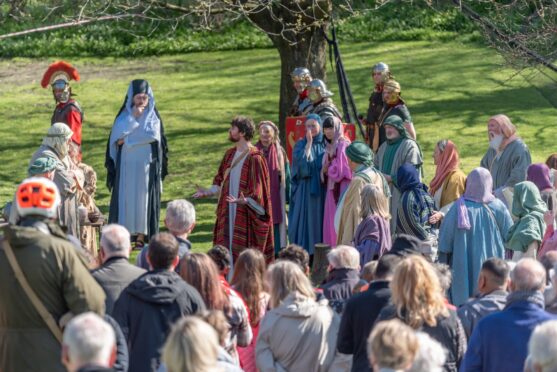
It’s a story dating back over 2,000 years but, every year, Edinburgh’s Easter passion play finds new perspectives that resonate with today’s world.
A highlight of the Easter weekend in the capital, audiences of thousands have headed along to Princes Street Gardens to take in the large-scale community play since it began in 2005.
Beneath the iconic backdrop of Edinburgh Castle, the cast of over 40 of all ages and a mix of faith and non-faith backgrounds come together to tell the story of the days leading towards the death of Jesus Christ.
“I love being able to bring my work as a director together with my faith,” said director Suzanne Lofthus, who has helmed the show since it began.
“The challenge I set myself every year is to look at whether the message still has something to say today.
“We did it when the invasion of Ukraine had just happened and told the story as a group of refugees coming together, and the one thing they still had was the gift of storytelling and their history.”
Giving women names and stories
This year’s edition, Easter – The Women’s Story, tells the story from the perspective of 11 women whose lives were changed by the death and resurrection of Jesus.
Working together with the actors to give them names, faces and identities, the fresh take was inspired by injustices still being suffered by women in parts of the world today.
“I’ve really been affected by stories from Afghanistan and Iran and other places where women are not allowed to have a voice,” Suzanne said.
“Very often, the women’s stories in the story of Jesus get missed or sidelined. A lot of them don’t even have names.
“It was really interesting to look at how they were affected and changed by encountering Jesus.
“One of the actors has written the part of Claudia, Pilate’s wife. Another has written the part of Mary, Jesus’s mother.
“Often in these plays, Mary doesn’t really say anything, so we’ve given her a voice, and as an older woman which is really nice.”
The play reflects the ethos of producers Cutting Edge Theatre, which often works with marginalised communities to address stories left untold.
The accessibility extends to British Sign Language interpreters having roles in the play.
“Everybody works together to tell this story,” Suzanne said.
“We have a lot of fun in rehearsals, and people in the cast describe it as being part of a family.
“The day on Princes St Gardens starts at 8am and doesn’t stop until 6pm. It’s a mammoth thing, an amazing day and we love doing it.”
The play can also be an emotional experience for both the cast and the audience, in particular the crucifixion scene.
“That’s one I don’t tend to direct as such,” Suzanne explained. “If they’ve all done their work on the characters, I basically just say to react to the scene how you think your character would.
“Some of the audience last year found that scene, although it’s short, quite emotional and they weren’t necessarily believers.
“There’s just something in that scene. A man has laid down his life for his friends and that’s very relevant, if you look at Ukraine just now.
“The themes never change, that’s why the story can always adapt.”
A large-scale production
One of the largest community theatre productions in Scotland, the play is the product of months of hard work by around 100 actors, costume-makers, stewards and technicians.
Anita France, who has been an amateur actor for around 30 years, takes on the role of Mary and was involved in writing her character.
“It was difficult because we knew so little,” she said. “We can look at Jesus; he was loving and caring and you can tell a lot about someone’s upbringing by studying them, so you’ve got a fairly good idea about the basic nature of their parents.
“Mary was very brave. She risked being stoned to death by accepting God’s wish to have a child outside marriage.
“We’re told in the Bible that she kept things in her heart and thought about them. She was also at the cross to support her son and watched him being tortured to death. Not every mother could do that. You can guess the sort of woman that she was.”
Also in the cast is Lauren Nicol, who is taking part for the first time as she dips her toe back into acting after a spell away.
She plays Mary Magdalene, the first person to see Jesus after his resurrection.
“Historically, women had to be attached to a male figure, but she’s not,” she said.
“It’s like she’s the feminist of the time. As a woman, there’s a lot to take forward from that and their association with the spread of the word. She’s the first to see Jesus alive and that’s a really powerful message.
“I really felt it burning inside of me that I wanted it to be a Christian story that I was telling. Easter is obviously one of the main festivals so looking at it from a women’s perspective has been really interesting.
“I’m so lucky and honoured to be a part of it.”
Easter: The Women’s Story, free and unticketed at West Princes St Gardens, Edinburgh, Saturday March 30 from 2pm, easterplay.org

Enjoy the convenience of having The Sunday Post delivered as a digital ePaper straight to your smartphone, tablet or computer.
Subscribe for only £5.49 a month and enjoy all the benefits of the printed paper as a digital replica.
Subscribe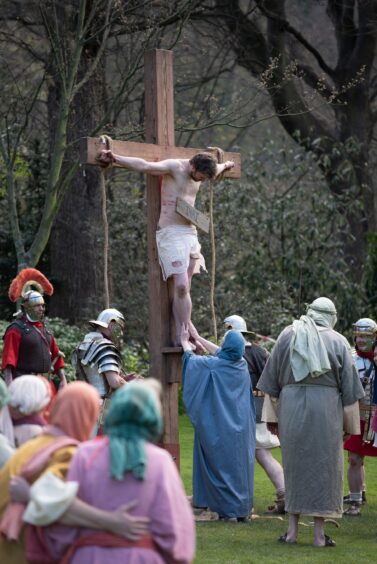 © Grant Bulloch
© Grant Bulloch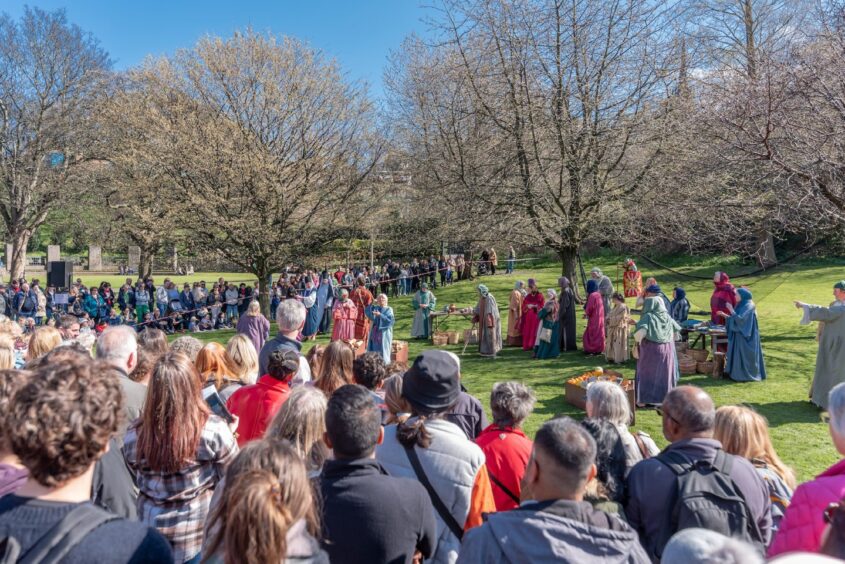 © Grant Bulloch
© Grant Bulloch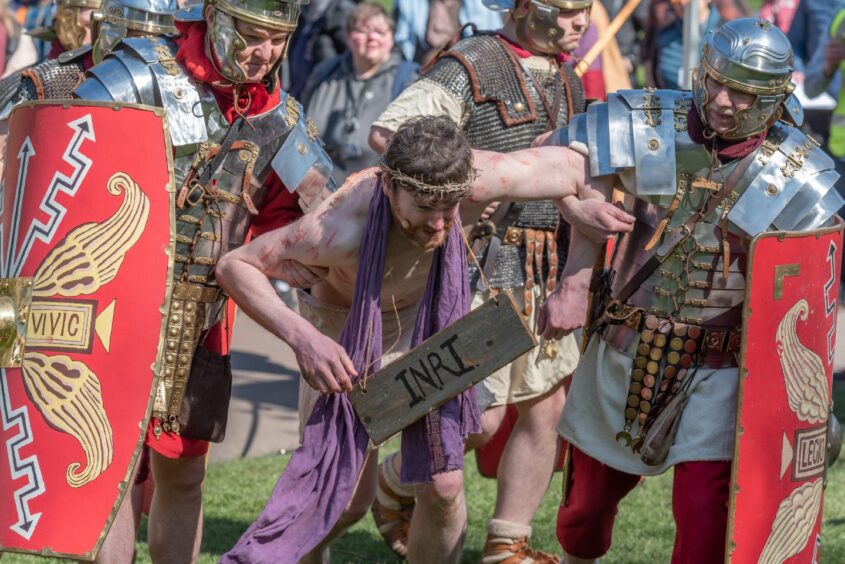 © Grant Bulloch
© Grant Bulloch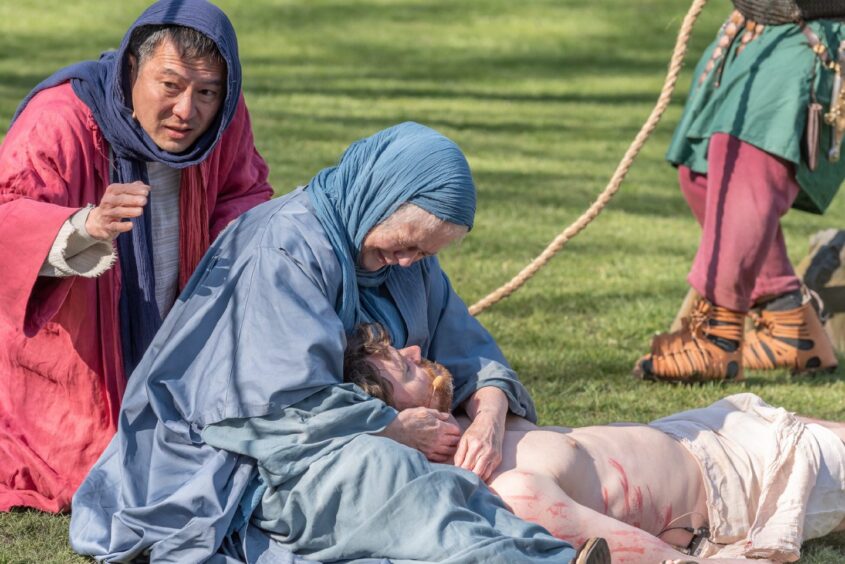 © Grant Bulloch
© Grant Bulloch